
Social Studies & Personal Finance
Quick Links
News
Now Offering Virtual Office Hours: Every 1st Wednesday of the Month from 3:00-4:00 p.m.
This will be a space for educators and administrators to connect with the director for guidance on standards, teaching strategies and supporting diverse learners. Join us to collaborate, share ideas and enhance social studies education for all students. If the time does not work please email me to schedule a meeting with a time that works for you!
Join us here:
Meeting ID: 259 515 019 320 9
Passcode: eg6w5zz2
Assessment Development Recruitment
As a part of the assessment development cycle, DESE Assessment invites Missouri educators to participate in the process to help provide expertise. Missouri is always looking for educators to participate in these meetings. If you wish to be considered for participation for any future development meetings, please complete the online submission form. Once finished, you will receive an email to the personal email address provided to confirm your submission.
- Instructional Resources
Missouri Learning Standards
The standards, approved on April 19, 2016, are for implementation beginning in the 2016-2017 academic year. They will be assessed in Government and HS American History (optional) EOC assessments in a census field test in 2018-2019 and then in operational form beginning in 2019-2020.
Social Studies - K-5: K-5 PDF | K-5 Word
Social Studies - 6-12: 6-12 PDF | 6-12 Word
Social Studies - K-12: K-12 Excel (Updated 02.15.19)Priority Standards
Crosswalks
*Updated 5.30.18
K-5 | MS American History | MS World Geography | MS World History | HS American Government. | HS American History | HS World HistoryTeacher View
These are the new Missouri Learning Standards K-12 Expectations for Social Studies, but the alternative layout includes details and resources classroom teachers may find helpful.
- Social Studies Standards K-5-- Teacher View.
- Middle School: American History | World History | Geography
- High School: American History | World History | Government
MO LEAP Blocks Social Studies
Additional Resources
- Arts/Government /ELA Crosswalk Example
- ELA/Social Studies Crosswalk Example
- Social Studies Glossary
- MLS Expectations Coding System
- Curriculum Framework
Constitution Day
- Constitution Day is September 17, 2025
- Missouri Bar
- The Missouri Bar has a wealth of resources for teachers including recommended websites for learning about the Constitution and the Bill of Rights, exploring the philosophical and historical foundations, and for information about the Constitutional Convention of 1787 and the constitutional ratification process.
- The Missouri Bar also has targeted resources for social studies learning k-5. Go to The Missouri Bar’s Online Order Form
- What Do Lawyers and Judges Do? This is a coloring book that describes the various roles of judges and lawyers.
- How Does Our Government Work? This is a coloring and activity book that talks about rules and how our government works at both the federal and state levels.
- Unlock the World of Justice: With Missouri Courts' Engaging Presentations!
- Dive into the fascinating realm of the judicial system with Missouri Courts' dynamic presentations, tailored for students of all ages. Missouri judges will visit your school, igniting curiosity and understanding through content-rich discussions. Their engaging sessions delve into real-life cases, weaving together law and life, making the legal world come alive for learners. The presentations will lead students to an educational journey that empowers minds and fosters a deeper appreciation of Missouri’s justice system. Educators may explore the offerings.
- Missouri Supreme Court Education
Other Resources
- Assessment Resources
Social Studies Item Specifications
- Kindergarten
- Grade 1
- Grade 2
- Grade 3
- Grade 4
- Grade 5
- Grades 6-8 - American History
- Grades 6-8 - Geography
- Grades 6-8 - World History
- Grades 9-12 - American History
- Grades 9-12- Government
- Grades 9-12 - World History
Although teachers may use this document to provide clarity to the expectations, these specifications are intended for summative, benchmark, and large‐scale assessment purposes.
Components of the item specifications include:
- Expectation Unwrapped breaks down a list of clearly delineated content and skills the students are expected to know and be able to do upon mastery of the Expectation.
- Depth of Knowledge (DOK) Ceiling indicates the highest level of cognitive complexity that would typically be assessed on a large scale assessment. The DOK ceiling is not intended to limit the complexity one might reach in classroom instruction.
- Item Format indicates the types of items used in large scale assessment. For each expectation, the item format specifies the type best suited for that particular expectation.
- Content Limits/Assessment Boundaries are parameters that item writers should consider when developing a large scale assessment. For example, some expectations should not be assessed on a large scale assessment but are better suited for local assessment.
- Sample stems are examples that address the specific elements of each expectation and address varying DOK levels. The sample stems provided in this document are in no way intended to limit the depth and breadth of possible item stems. The expectation should be assessed in a variety of ways.
- Text Types suggests a broad list of text types for both literary and informational expectations. This list is not intended to be all inclusive: other text types may be used in the classroom setting. The expectations were written in grade level bands; for this reason, the progression of the expectations relies upon increasing levels of quantitative and qualitative text complexities. (English Language Arts Only)
- Calculator Designation indicates whether a calculator will be available for test questions written to a particular expectations on the large-scale assessment. (Mathematics Only)
- Stimulus Materials defines types of stimulus materials that can be used in the item stems. (Science and Social Studies Only)
- Possible Evidence indicates observable methods in which a student can show understanding of the expectations. (Science Only)
Link to Item Specifications section on the Assessment page.
End of Course Resources
- Personal Finance
In 2016 the State Board of Education authorized the organization of a workgroup to evaluate, and possibly make recommendations to modify or revise Personal Finance learning standards. These standards have not changed since 2006 when the State Board of Education revised graduation requirements for Missouri’s students to include one-half credit of Personal Finance. The new standards were approved during the September 2017 State Board meeting for implementation during the 2019-2020 school year.
Resources for Personal Finance Curriculum Development
- Personal Finance Course Level Expectations: approved September 2017
- Personal Finance Crosswalk: 2016 Standards/2017 Standards/Coding
- Personal Finance Course Level Expectation Excel 2017
Instructional Resources
Check out these amazing and FREE resources from the Federal Reserve! They can be added directly to your LMS!
Personal Finance Assessment:
- As part of their curriculum, students in Missouri must earn a 1/2 credit in the area of Personal Finance.
- Students who are receiving personal finance credit from embedded coursework: The online assessment is REQUIRED. The pass rate is the district’s decision.
- Students attempting to “test out” and receive personal finance credit toward graduation: The online assessment is REQUIRED. Students must attain a score of 90% or higher to receive personal finance credit.
- Students who are enrolled in a stand-alone personal finance course: The online assessment is OPTIONAL. Participation, however, permits the district to evaluate student achievement with an assessment fully aligned to state standards.
- A student may take the Personal Finance Assessment ONE time per testing window.
- The Personal Finance Assessment is provided at no cost to districts
- Civics and Patriotism
In order to be a Civic- and Patriotic-Minded Graduate of Missouri schools, students must understand, participate in, and make informed decisions about their community and nation. Students should be reflective as they become
- knowledgeable,
- empowered, and
- engaged.
Missouri schools strive to cultivate reflective students who are knowledgeable, empowered, and engaged citizens. We believe that to achieve this, students should be equipped with a range of skills and character traits that enable them to succeed in life beyond the classroom. The goal is to foster students who are informed and critical thinkers, who actively seek out knowledge and use it to make informed decisions. We encourage students to be communicators who can express themselves clearly and confidently and be connected to their communities and the wider world.
We aim to develop resilient students who can cope with the challenges of life and are respectful of themselves and others. We want our students to feel proud of who they are and what they can achieve, be service-minded, and search for ways to make a positive difference in their communities. By embodying these qualities, we believe that our students will be well-equipped to lead fulfilling lives and make a positive impact on the world around them.
What is Civics?
Civics provides individuals with the knowledge and skills necessary to participate effectively in their communities and in the political process.
- Civics includes the knowledge, inquiry, and analysis of rights, duties, and responsibilities of individuals within their local, state, and national governments.
- Civics includes understanding and exercising rights and responsibilities within the community and nation.
- Civics includes describing and evaluating the political systems, laws, and institutions of local, state, and national governments.
These civic indicators prepare and empower individuals who are capable of making informed decisions and contributing to a more perfect union.
What is Patriotism?
Patriotism is a knowledgeable connection and service to the United States of America in its journey to be a more perfect union.
- Patriotism includes knowledge and understanding of the common good and civic attitudes.
- Patriotism includes knowledge, inquiry, and analysis of our past and present.
- Patriotism includes an understanding of the connection between rights and responsibilities.
- Patriotism includes understanding and valuing human experiences.
- Patriotism includes understanding and celebrating shared values.
Patriotism inspires individuals' civic action wherever they are and however they can.
America 250 Resources
Resources:
Grade Level Frameworks
- Kindergarten Lessons
- First Grade Lessons
- Second Grade Lessons
- Third Grade Lessons
- Fourth Grade Lessons
- Fifth Grade Lessons
Content Level Frameworks
- Grades 6-8 American History Lessons
- Grades 6-8 Geography Lessons
- Grades 6-8 World History
- Grades 9-12 American History Lessons
- Grades 9-12 Government Lessons
- Grades 9-12 World History
Additional Resources
- Works Cited
- Classroom Civics Poster (8.5x11) (8.5x14)
- Glossaries
- Missouri Holocaust Education
Holocaust Education
On June 30, 2022, Governor Parson signed into law Senate Bill 681 and 662 (2022) mandating Holocaust education in the state of MO for students in grades 6 – 12 as determined by each school district. This mandate will be phased in via a pilot program beginning in the 2023-24 school year with all school districts participating by the 2025-26 school year.
Per Section 161.700 RSMo, phase one of this pilot program shall be made available to up to twenty-five school districts or schools within a district, with at least one district or school within each of the nine Regional Professional Development Centers as defined by the Department of Elementary and Secondary Education. Each school district participating in the pilot shall adopt the curriculum framework provided by the department in the 2023-24 school year and provide a plan of professional development for teachers to ensure such teachers are adequately prepared to provide the required instruction.
To address this requirement, the Department of Elementary and Secondary Education, in consultation with the Missouri Holocaust Education and Awareness Commission, is developing a curriculum framework of instruction with suggested resources for teaching the Holocaust as well as a high-quality professional development training course for participants.
Benefits of Participation:
- State-funded professional development and high-quality resources for educators Mentors to support implementation of the curriculum framework
- Opportunity to provide feedback on the curriculum framework
- Involvement in a cadre of Missouri Holocaust educators
For program-specific questions or more information on applying, contact Tyler Janke at 573-751-0398, or by email at tyler.janke@dese.mo.gov.
To learn more about the work of the Missouri Holocaust Education and Awareness Commission.
Resources
Curriculum Framework of Instruction for Studying the Holocaust
Missouri Holocaust and Awareness Commission website
Midwest Center for Holocaust Education Kansas City
On-Demand Professional Development Videos from the United States Holocaust Memorial Museum
Belfer National Conference for Educators
This virtual conference addresses two critical themes: confronting antisemitism and teaching with primary sources, including historical artifacts. By participating in this event, you will:
Earn 24 professional development credit hours Access historically accurate classroom-ready lessons and resources based on the Museum's extensive collections
More information may be found at USHMM teach opportunities.
- Learn how teaching about the Holocaust meets curricular goals and standards
- Hear directly from Holocaust survivors and seasoned educators
- Scholarships, Competitions, and Awards
United States Senate Youth Program
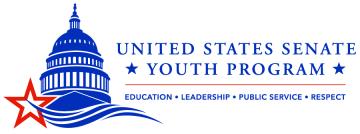
Are you a high school junior or senior with a passion for public service, leadership, and government? The United States Senate Youth Program (USSYP) offers a once-in-a-lifetime opportunity to spend a week in Washington D.C., meeting Senators, government officials, and fellow students leaders from across the nation - all expenses paid and with a $10,000 college scholarship!
Lead. Learn. Serve.
The 64th annual United States Senate Youth Program Washington Week is being planned to be held in person in Washington, D.C. March 7-14, 2026.
- USSYP Website
- 2026 Official Program Brochure
- How to Qualify for USSYP
- 2026 USSYP Student Application
- USSYP Application Checklist
Completed applications for Missouri students are due by 11:59 pm on Wednesday, October 8, 2025.
Note: Candidates will need to download/save the form or document before completing.
Missouri Citizenship Award Application
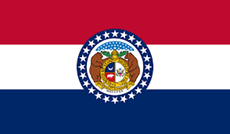 Are you a student who demonstrates knowledge of the principles of government and citizenship through academic achievement, participation in extracurricular activities, and service to your community? If so, apply for the Missouri Citizenship Award! Selected students will also be recognized on the American Bar Association's Civics and Law Honor Roll for their commitments to civic learning and engagement.The following application describes eligibility and selection criteria. The application must be received by March 4. Late or incomplete submissions will not be accepted.
Are you a student who demonstrates knowledge of the principles of government and citizenship through academic achievement, participation in extracurricular activities, and service to your community? If so, apply for the Missouri Citizenship Award! Selected students will also be recognized on the American Bar Association's Civics and Law Honor Roll for their commitments to civic learning and engagement.The following application describes eligibility and selection criteria. The application must be received by March 4. Late or incomplete submissions will not be accepted.Missouri Civics Bee
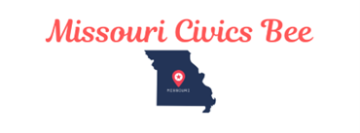
Show off your civic smarts in the Missouri Civics Bee! Compete, connect, and make your voice heard as you tackle real-world issues shaping our communities. Open to Missouri middle-school students through your local chamber of commerce, students compete for the chance to represent Missouri at the national competition in Washington D.C.!
For more information please visit:
Missouri High School Mock Trial Competition

Think Fast. Speak Boldly. Win the Case.
Join the Missouri High School Mock Trial Competition and step into the shoes of attorneys and witnesses as you argue real cases in real courtrooms. Build your skills in public speaking, critical thinking, and teamwork–all while having fun and competing with top students teams across Missouri.
- Open to all Missouri high schools
- Sponsored by The Missouri Bar
- Regional & Statewide Competitions
The Missouri High School Mock Trial Competition was founded by The Bar Association of Metropolitan St. Louis (BAMSL) in 1979 and is BAMSL's longest-running program. The competition is financially supported by the Saint Louis Bar Foundation and the Missouri Lawyer Trust Account Foundation with program support from the Lawyers Association of Kansas City Young Lawyers Section and the Springfield Metropolitan Bar Association.
Join us in celebrating 44 years of empowering and educating our future leaders through the Missouri High School Mock Trial Competition.
Important Details:
- How to Start a Team
- Opens from October 16 to December 15.
- Contact: For information, participation, and sponsorship opportunities, please contact Danny Barnett-Foster, Missouri’s State Coordinator, at dbarnett@bamsl.org or 314-485-3803.
For over four decades, the Missouri High School Mock Trial Competition has been a catalyst for legal education, offering students a unique platform to explore the intricacies of the legal system while honing essential life skills.
Constitutional Democracy Academy at Missouri University - Columbia

Explore the Power of the Constitution, Shape the Future of Democracy.
Are you a junior or senior that is deeply interested in American history and politics? You are encouraged to apply for the Constitutional Democracy Academy at the University of Missouri, the Kinder Institute. This weeklong summer experience delves students into discussion topics including the Constitutional Convention; separation of powers and the control of the effects of faction, founding mothers, slavery and the Constitution, the Bill of Rights, and the Supreme Court.
Think Critically, Debate Passionately, Lead Boldly.
To learn more visit Constitutional Democracy Academy or CDA Brochure.
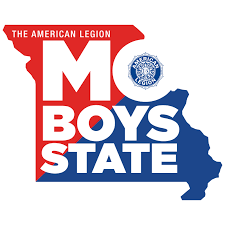
MO Boys State
Missouri Boys State is a premier leadership program where high school juniors learn how government works by running it themselves. Spend a week building leadership skills, debating real issues, and connecting with motivated peers from across Missouri. Step up, serve, and shape your future–apply to MO Boys State.
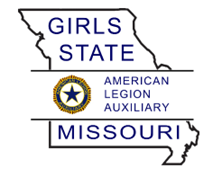
MO Girls State
Missouri Girls State is a dynamic leadership experience for high school juniors where students bring to life by running it themselves. Participants build confidence, sharpen leadership skills, and engage in meaningful discussions on real-world issues alongside motivated peers from across Missouri. Lead, serve, and make your voice heard–apply to MO Girls State.
National History Day in Missouri
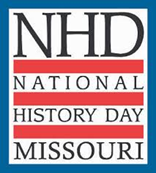
Through the National History Day in Missouri (NHDMO) program, the State Historical Society of Missouri transforms the way students view history. Students learn about their world and themselves by creating hands-on research projects and competing in successive regional, state, and national contests.
For more Information please visit: National History Day in Missouri.
Show Me the Constitution

Show What You Know. Defend What You Believe. Presented by The Missouri Bar, Show-Me The Constitution is Missouri’s premier constitutional contest for high school students!
- Compete in team-based hearings on the U.S. Constitution.
- Strengthen your civics knowledge and critical thinking.
- Present arguments to judges, lawyers, and educators.
- Represent your school and earn recognition statewide.
For more information visit Show-Me the Constitution
Economics Contests
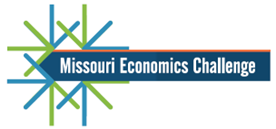
Think. Compete. Win.
Put your economic knowledge to the test in the Missouri Economics Challenge- the ultimate competition for middle- and high-school students who love real-world problems, crunching data, and making smart decisions. Gather your team, sharpen your skills, and see if you have what it takes to be Missouri’s top young economist!
For more information please contact Dr. Grant Black at gblack@lindenwood.edu or 636-949-4160.
Missouri Purple Star Schools
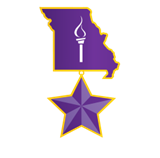
Honoring Service. Supporting Students. Strengthening Communities.
The Missouri Purple Star School designation recognizes schools that demonstrate commitment to supporting the unique academic and social-emotional needs of military-connected students and their families. By earning the Purple Star, schools show that they are more than places of learning–they are communities of care that honor the service of military families while ensuring students succeed.
Military Child of the Year
Do you know a young leader who inspires others, gives back to their community, and thrives despite the challenges of military life? The Military Child of the Year Award honors the resilience, achievements, and dedication of extraordinary military-connected kids. Winners receive $10,000 cash, a laptop, a 3-day trip to Washington D.C., and more! To learn more please visit Military Child of the Year.
Nominations due: December 2
- Professional Development & Content Resources
Organizations
Professional Development
Content Resources



